Different Shades of Kobe
What is it like to meet Kobe Bryant? Damian Burchardt investigates the fascinating mind of the Lakers great through stories of those who have crossed his path

January 16, 2014. Nothing seemed out of the ordinary on that day for students at Boston College. Fog shrouded the two characteristic brick towers of the Carroll School of Management on a warm Thursday afternoon in Chestnut Hill. Although the spring semester had just begun, around 40 students were sitting oblivious for quite a while in their International Marketing class. But only until one of professor Nick Nugent’s pupils turned around and “lost it,” Mary Kate Hart recalls.
Kobe Bryant was sat among them, casually taking notes.
Bryant’s smooth moves and elusiveness on the basketball court were the hallmarks of his illustrious career. But how an athlete of such format could have possibly strolled down the gigantic Boston College campus unnoticed was a mystery to the students in the room. “He made a joke about how we’re all on our phones all the time so no one looked up,” Hart says. “Which was true.”
Touché. Bryant’s snide but usually dead-on remarks are certainly of his trademarks and a key component of the fabled Mamba Mentality. The Philadelphia-born NBA legend not only is one of the greatest Lakers of all time. He's also a fascinating and complicated character whose different shades start to emerge when your path happens to cross with his.
Photo Credit: Wikimedia
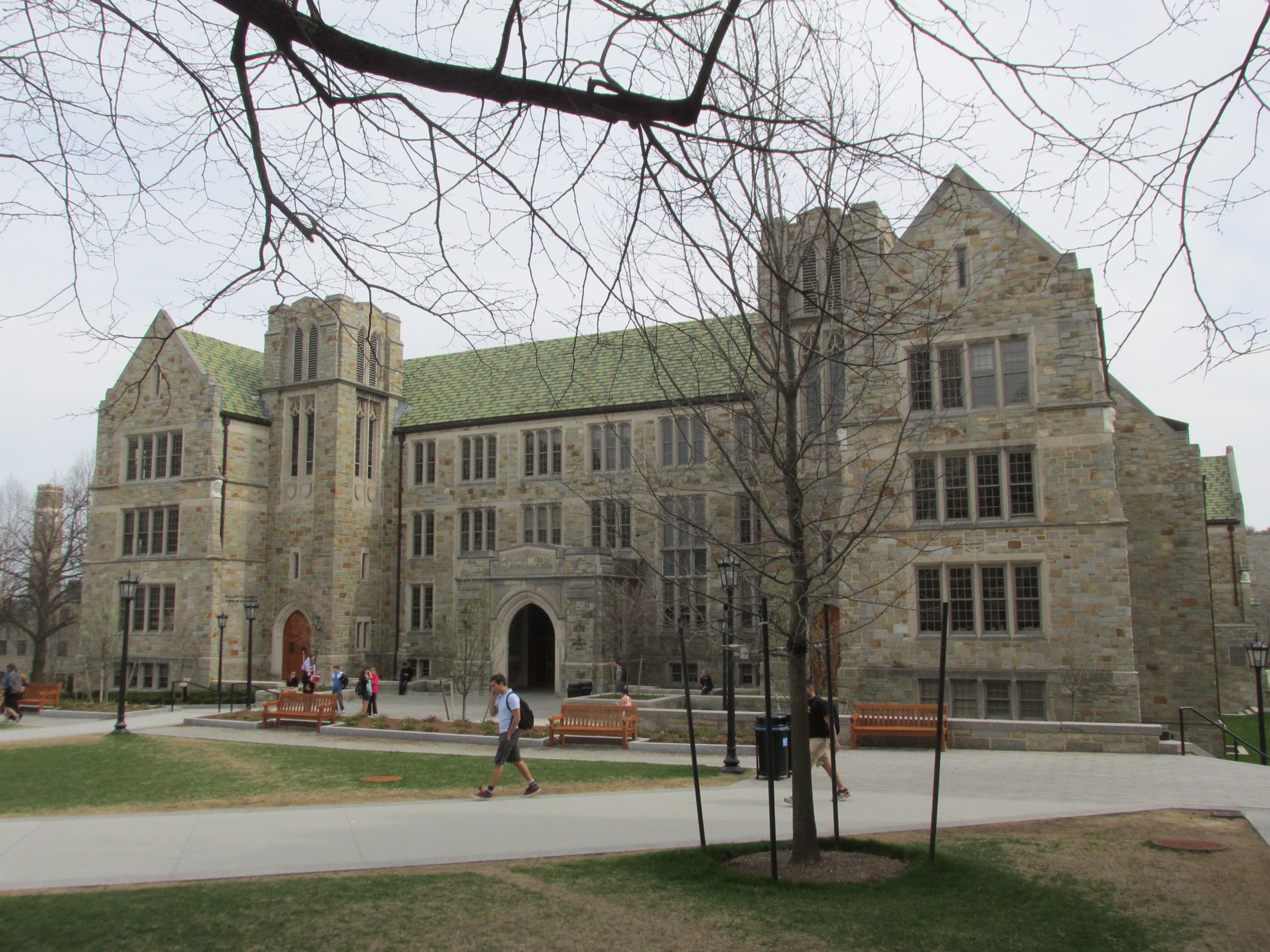
Franco Graceffa knows his way around celebrities. His North End restaurant, Dolce Vita, has grown famous serving Bostonians with Italy’s best specialties ever since he opened the place in 1990. Inside, dimmed lamps throw just enough light to recognize all the famous faces in numerous pictures that make up for a fair share of the cozy decor. There is Andrea Bocelli. And, Bryant is there too.
Graceffa was very skeptical of Bryant’s visit when his assistant first called the restaurant a couple of days beforehand. “A little snobby.” That’s how he painted the Lakers legend in his mind. Bryant, however, quickly proved him wrong. His charm manifested instantaneously when the Lakers legend, in fluent Italian, started telling stories from his childhood spent on the Apennine Peninsula.
Pining for homemade gnocchi or the famous veal pasta, Bryant would return to Dolce Vita on numerous occasions resulting in many fond memories that Graceffa's employees hold to this day. Among them there is one of the Lakers great chatting up a little girl dining with her dad – who was sporting a Celtics jersey – at the adjacent table. Bryant then took care of their bill before posing for a commemorative photo, a moment which has been immortalized in one of the two pictures of him hanging on the Dolce Vita walls. James, a server who has worked for Graceffa for 25 years, points at the photo before reaching to a stack of menus and pulling the one with Bryant’s autograph scribbled on it. In the background, the Italian version of My Heart Will Go On, otherwise known as the Titanic song, adds to the melancholic atmosphere.
In Graceffa's mind, Bryant was quickly upgraded from “snobby” to “down-to-earth." But the restaurateur was not the first and, probably, not the last person to misjudge the NBA legend at first glance. “I thought he would be stuck up, conceited, arrogant…,” says Kelly Graves, the head coach of Oregon Ducks women’s basketball team.
“He was none of that."
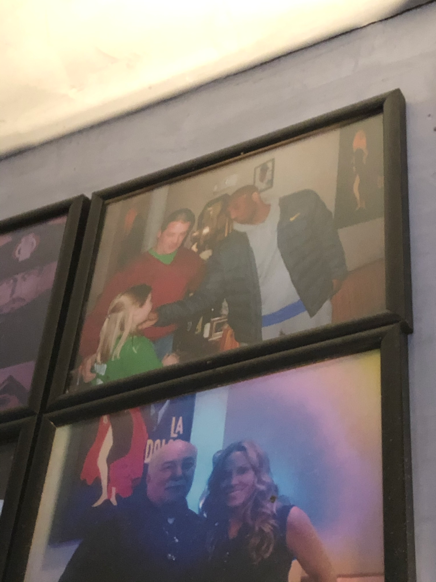
Photo Credit: Damian Burchardt
Photo Credit: Damian Burchardt
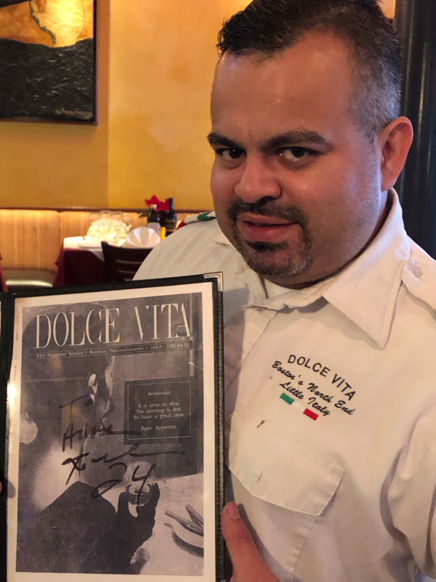
Photo Credit: Damian Burchardt
Photo Credit: Damian Burchardt
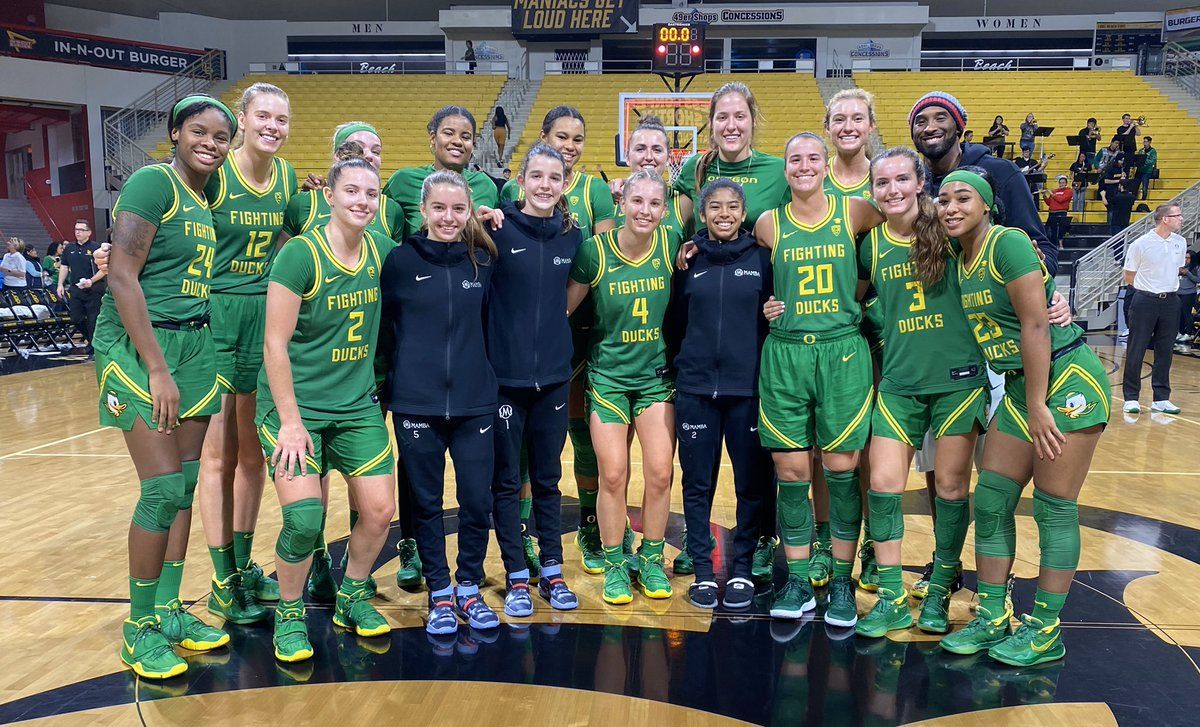
Photo credit: Twitter/@OregonWBB
Photo credit: Twitter/@OregonWBB
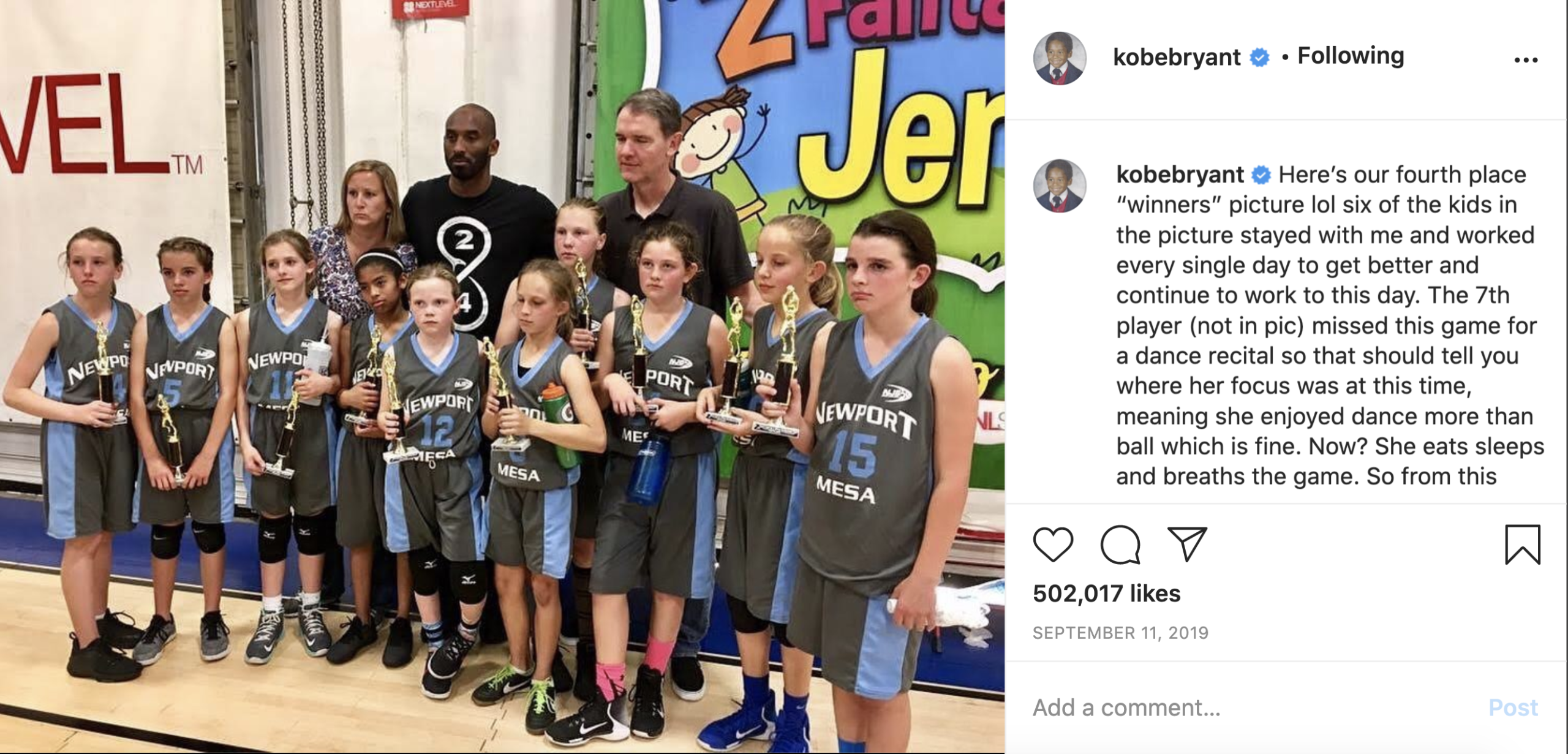
Photo Credit: Instagram/@KobeBryant
Photo Credit: Instagram/@KobeBryant
Graves knew in advance that Bryant would pay his team a visit following their 93-53 win over USC in January earlier this year. But he kept it a secret. The Ducks, led by the future Wade Trophy winner Sabrina Ionescu, were en route to their first-ever NCAA Final Four appearance. Graves feared the Kobe Bryant effect. He feared it could have been an unnecessary distraction.
Excitement filled the locker room and tears nearly trickled down the cheek of one of the German players when Bryant walked in, his daughter Gigi next to him. The Lakers legend took his time to talk to every single player before signing their shoes. Funnily enough, Oregon happened to wear Kobe kicks that day. “He was gracious and humble,” Kelley recalls. “At that moment, he didn’t think he was too cool for what he was doing.”
Bryant did offer Oregon stars a taste of Mamba Mentality, though. He was able to analyze the performances of a couple of fringe players he had surely not seen before which, in Kelley's words, "just shows what kind of mind he has." Bryant also told them not to "shoot yourself in the foot," according to the Ducks head coach, as if they hadn’t just chalked up a 40-point away win.
Nine months after the Oregon trip, Bryant set social media on fire by calling out a 13-year-old girl he coached for choosing a dance recital over hoops on Instagram. The post went viral and he faced an avalanche of criticism for "throwing shade" at his young player.
It can come across as harsh at times, but Mamba Mentality means perfection and nothing less than perfection. As it turns out, it always has.
Gregg Downer, Lower Merion High School's coach, says it took him just "five minutes" to realize how special a talent he had on his hands in Bryant. But what transpired just as quickly was the degree to which the young baller's loathed losing.
Bryant would never settle for the second place. And, he would not tolerate people around him who did. “If you didn’t have the same passion or the same intensity that he has for winning he would hold you accountable and could be a very harsh leader,” Downer said. “He didn’t tolerate shortcuts. If he noticed a lack of focus, lack of work ethic, lack of vision, he would have a hard time with you,” he adds.
Shaquille O'Neill or Dwight Howard would probably say that this statement sounds about right.
But Bryant's Mamba Mentality is not confined exclusively to the basketball court. It goes beyond hoops and spills into other aspects of his life. Lakers sideline reporter Mike Trudell witnessed it first-hand. “This is my best Kobe story,” he replies almost instantly when asked about his most memorable Bryant encounters.
Photo Credit: Noah Zuares, aceshoops.com
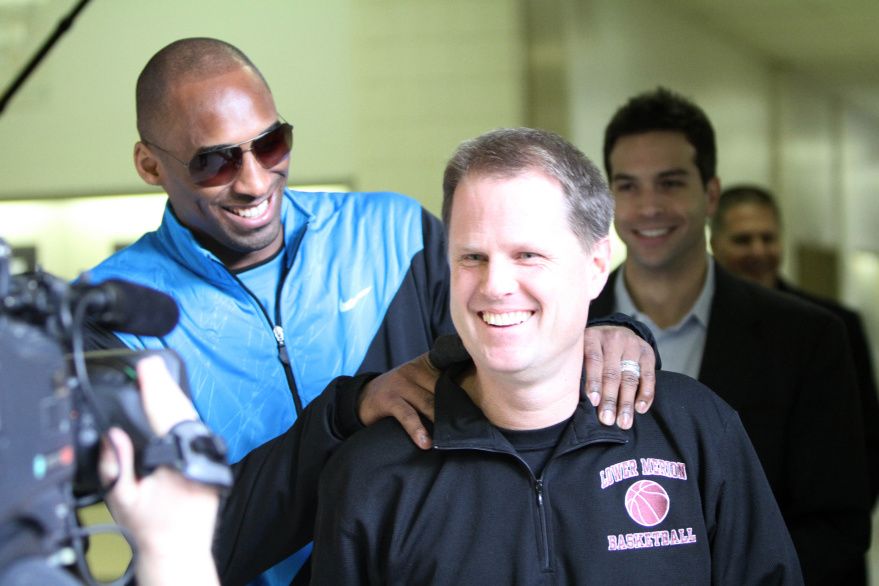
"Most people – including the other professional athletes in the room – were playing ping-pong for fun that night. One of the 10 best basketball players in history was playing ping-pong to win"
Mike Trudell, Lakers Reporter
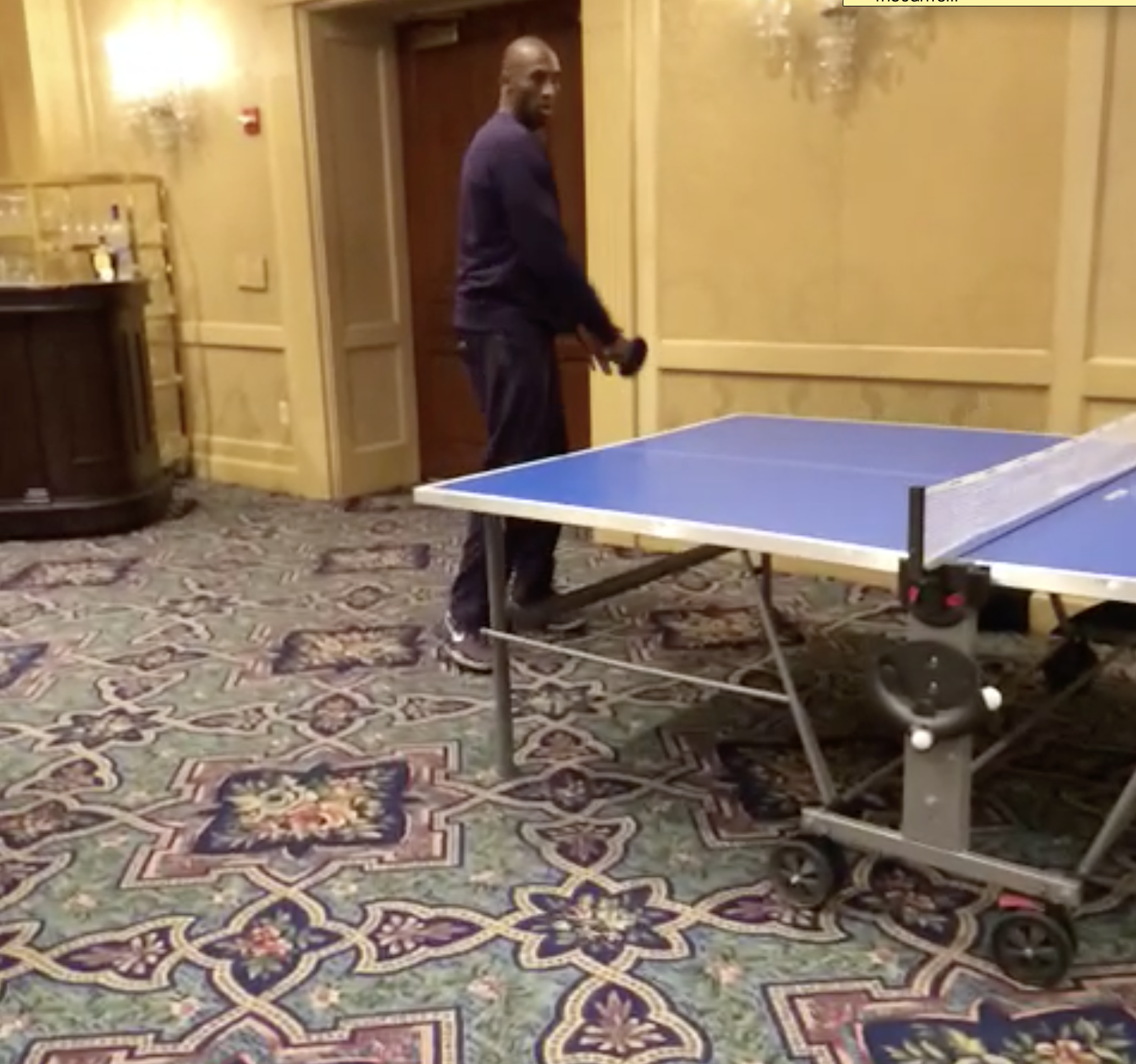
The Lakers were on a road trip in Detroit over Thanksgiving of 2013. Trudell, just as the rest of the traveling party, was killing spare time by playing ping-pong in the ballroom Bryant had rented out for holiday festivities. He was getting the better out of Shawne Williams, earning the NBA veteran a fair amount of trash-talking from Bryant.
Somewhat triggered, Trudell threw down the gauntlet and challenged him to a game. It took no time for the Lakers legend to pick it, and a paddle, up.
Bryant did lose two matches in a row, although getting visibly better with every single swing of the paddle. It became personal. "Most people – including the other professional athletes in the room – were playing ping-pong for fun that night. One of the 10 best basketball players in history was playing ping-pong to win," Trudell wrote at the time for NBA.com.
Over a ping-pong table, or in front of the camera, meeting Kobe often bears a certain degree of challenge. Trudell admits that having interviewed NBA stars on countless occasions throughout his career, talking to Bryant would eventually not give him the heebie-jeebies anymore. Yet, he always had to make sure he was bringing his A-game when it was time to ask him questions. “You have to make sure that what you’re saying makes sense because, you know, he’s not going to pretend otherwise,” Trudell says.
Although he was never subjected to the wrath of Black Mamba himself, Trudell is aware of cases of unfortunate journalists who would draw his ire. Because unlike some other athletes rushing through an interview, Bryant listens. And he listens carefully. “He is very sharp and very informed,” Trudell says. “He’s going to really think about it and give his actual answer.”
Not only does Bryant pay attention. He memorizes a lot, too. To the extent that, once the camera is off, he would be able to initiate and hold a conversation on some non-basketball-related topics that had come up in the past as of common interest. Be it soccer, kids, or hip-hop.
Or Israeli politics.
Photo Credit: NBA.com
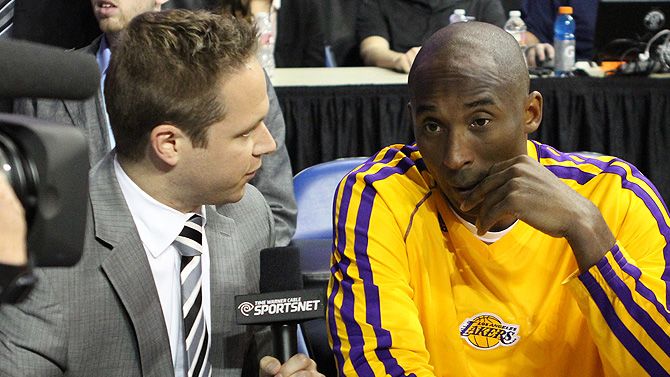
“The more he got to know my background outside basketball, the more he was interested in talking about non-basketball topics, which was a bit unusual,” says Shira Springer, a former Celtics beat writer for the Boston Globe and current WBUR’s sports and society reporter.
Springer’s relationship with Kobe is far from the ordinary. She can’t remember how many times she spoke to the Lakers legends back in his playing times. Probably 30 or 40. She teases that she has his cell number saved on her phone. But for obvious reasons, she won’t share it. What Springer did share, though, was the moniker that Kobe came up with for her.
Before the memorable 2008 NBA Finals against the Celtics Kobe imposed a one-day embargo on the media. But he did speak to Shira. “When he saw me, he was like ‘Hey, Boston!’ which is what he called me,” she recalls. Kobe knew she was sort of lingering around TD Garden having been sent out by the Globe to write a feature on him. “I said, ‘You’re making it difficult by not talking to the media. I need 20 minutes,’ and he goes ‘all right’.”
Springer says Bryant would make himself available if he respected someone, or if he thought there was something to gain by talking to someone. She didn’t say which one applied in said situation. But Springer, who graduated from Harvard with honors, did think Bryant felt he could unleash his intellectual curiosity around her.
Bryant would test her, but as the mind games went on he also wanted to be pushed and challenged, Springer says. His sense of humor would be on the dry side, making you wonder whether or not he was pulling your leg. “I think there was a part of Kobe that wanted to be different and special,” Shira said. “And one of the ways you could do that off-the-court was by engaging in these sorts of conversations that went well beyond baskets.”
Not everyone understood Bryant's sense of humor, though, which could prove troublesome to a celebrity of his format. Once, Springer recalls, Bryant made a joke along the lines of getting Israeli citizenship or, even, moving to the Middle East. Springer played along, suggesting he could perhaps convert to Judaism next. The conversation was off-the-record and nothing more than a meaningless banter. But not to a random reporter who happened to overhear it.
Not long after, Springer says, a major Israeli news outlet led with a story about Bryant considering playing for the Israeli national team in the future. “You can kind of see how challenging being Kobe Bryant could be,” Springer says.
Photo Credit: Shira Springer
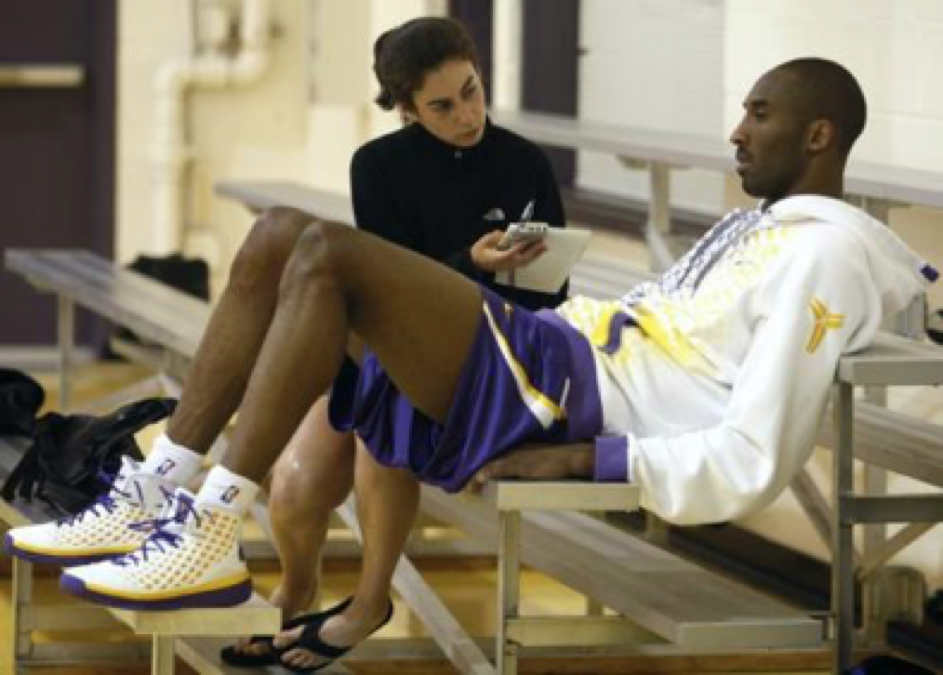

Kobe Bryant is a man of many shades and a fascinating, complicated mind, somebody who possesses a unique ability to surprise in imaginable ways both on and off the court.
While it's difficult to say what meeting meet Kobe Bryant is like, chances are it will be a celebrity encounter unlike any other.
